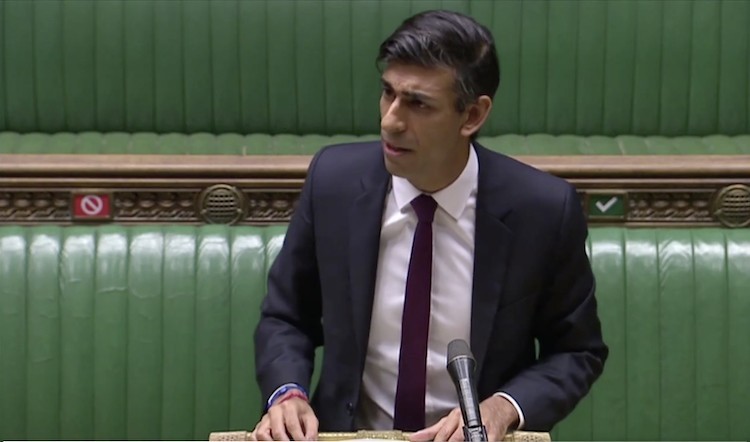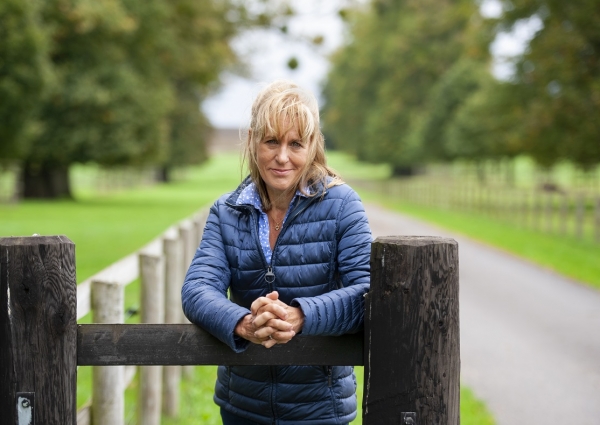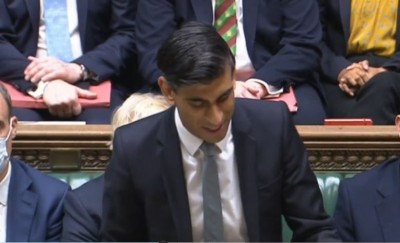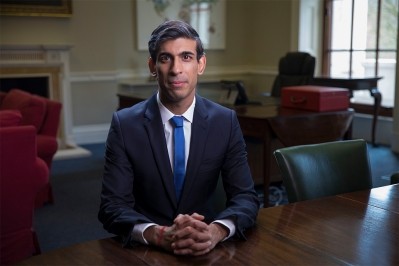Sunak's Spending Review: industry reaction

In the run-up to the review, which was launched by Chancellor of the Exchequer Rishi Sunak in the House of Commons on 25 November, Sustain had called on the Treasury to act on several food and farming measures.
It singled out its Children's Food Campaign, for example. It had backed Marcus Rashford's campaign plus measures highlighted in Part 1 of the National Food Strategy to extend free school meals, holiday food provision and the Healthy Start voucher scheme, in addition to extending the school fruit and veg schemes.
“The Spending Review did little to spell out specific support for food and farming," said Ben Reynolds, Sustain, deputy chief executive. "As the country’s largest sector employing one in seven, and contributing between a third and a quarter of greenhouse gas emissions, this was an opportunity to put investment in good food and farming as part of measures to build a green economic recovery.
Local food infrastructure
"The commitments including £1.5bn for a UK Shared Prosperity Fund, and a £4bn 'levelling up' fund for local areas, could provide investment in training and to rebuild local food infrastructure, and do so in a way that is good for jobs and the environment. But much more detail is needed in how, and whether, those working in food and farming can tap into this.
"The Chancellor has claimed that the spending review announced today 'has funded the priorities of the British people', but it seems the one million people that called for an end to child food poverty to be a priority have been forgotten. Some welcome announcements have been made already on healthy start vouchers and holiday support into 2021 but further recommendations to protect children, families and individuals living in food insecurity have not made the cut. Charities and community groups will need to continue plugging the gaps left by government and therefore we can only agree with the Chancellor that this budget is 'a work unfinished'."
Barbara Crowther, Children's Food Campaign coordinator, commented: "It's extremely worrying that this spending review gave no hope for over one million children currently excluded from eligibility for free school meals. We must all hold Rishi Sunak to his promise to do more to support the most disadvantaged families in the Spring Budget.
Soft Drinks Industry Levy
"Meanwhile the Soft Drinks Industry Levy continues to raise much needed revenue for children's health - around £336m in 2019/20 and this spending must be transparently accounted for. We will immediately seek clarification from the Treasury that this has been properly allocated as part of spending plans."
Sunak's Spending Review, documents for which detail Government funding so far to support industries and individuals hardest hit by COVID-19 as well as further planned support in 2021 met with a mixed response from farmers.
National Farmers Union president Minette Batters said: “Today’s announcement presents a mixed picture for our farmer and grower members. For farmers in England, it is good news that the government has confirmed its manifesto pledge to maintain existing levels of farm support. There is still more detail needed on how we transition to a new domestic agricultural policy and it is crucial we hear more detail on this as soon as possible.
Welsh Farmers
“However Welsh farmers appear to be facing a significant funding gap of £95m, compared to existing EU funding. This is unacceptable and clearly not consistent with the government’s levelling up agenda. The UK government must preserve existing levels of funding for Welsh agriculture."
Farmers' Union of Wales president Glyn Roberts said: “The 2019 Conservative Manifesto stated ‘...we will guarantee the current annual budget to farmers in every year of the next parliament’, thereby securing the votes of many farmers in Welsh constituencies. The manifesto promise repeated those made by leaders of the Brexit campaign, many of whom now occupy the highest offices of Government."
“The decision to slash the budget is therefore a complete betrayal of the farmers who have kept producing food and feeding the nation throughout the coronavirus pandemic, and adds to the extreme anger already felt following the UK government’s decision to oppose a legislative 'red line' in the Agriculture Bill that would have prevented the importation of low quality food in future trade deals.”
Batters welcomed infrastructure investment to help farmers drive green economic recovery, continue their transition to net zero and champion climate-friendly food production. "For this to happen, it’s crucial that these funding schemes, such as the Shared Prosperity Fund, are easily accessible for farm businesses," she said.
“I am pleased that part of this commitment to infrastructure investment includes doubling spending on flood and coastal defences. Many farmers are still suffering from the effects of catastrophic flooding earlier in the year, so it is vital as a nation we invest more in updating flood defences against more frequent extreme weather events."
Lifetime Skills Guarantee
The FDF broadly welcomed the review, particularly the Chancellor’s commitment to additional investment in skills. FDF chief executive Ian Wright said: "The Lifetime Skills Guarantee will be key to helping upskill the UK’s workforce, whilst Kickstart, the Youth Offer and other schemes will provide much needed additional support to those younger people who have been hardest hit by the pandemic."
Wright also hailed the £15bn allocated to research and development (R&D) funding in 2021. “It is encouraging too to see further money committed to R&D, which we hope will deliver long-terms benefits for food and drink manufacturers across the country."
He welcomed the introduction of the Shared Prosperity Fund for the devolved administrations and looked forward to seeing how the money would filter through to the food and drink sectors in Wales and Scotland.

HFSS products
However, he again stressed that the Government needed to revisit proposals to ban online ads for high fat, salt and sugar (HFSS) products. “If the government wishes to further support UK industry it must also consider whether it presses ahead with those policies which would deter investment and suffocate profitability. Proposals such as the proposed online advertising ban on HFSS foods would impact a broad swathe of products and inhibit innovation across our industry.”
The Chartered Institute of Environmental Health (CIEH) said Sunak's announced public sector pay freeze showed little support for local authority environmental health officers, who are already thin on the ground.
Debbie Wood, executive director for membership and external affairs at CIEH, said: “We are pleased to see the Government providing significant funding to support the UK in moving towards net zero and to help us meet our energy and environmental commitments.
Public sector pay freeze
"However, we are deeply concerned about the Chancellor’s announcement of a pay freeze for many working in the public sector. Our members working for local authorities have been at the heart of the COVID-19 pandemic response, after doctors and nurses. They have also worked tirelessly to ensure that restrictions are adhered to, businesses can reopen safely, as well as supporting their communities to deal with issues around noise, housing, food safety and other health and safety aspects.
"Having previously praised the work of environmental health professionals during this pandemic, the decision by the Government to now freeze their pay is both confusing and questionable.”

Emma McClarkin, chief executive of the British Beer & Pub Association, criticised Sunak's lack of further support for breweries and pubs: “Not only is the Government unfairly rendering pubs unviable or forcing many of them to stay closed this Christmas, it isn't even giving them the full financial support they need to survive. Whilst the news of a review of business rates reliefs in the New Year is a glimmer of positive news, it is not nearly enough.
'Killing viable pub businesses'
“It’s all well and good investing in new jobs, but the actions of this Government are killing viable pub businesses and thousands of jobs that already exist. Yet the Government is not doing enough right now to help them survive nor Britain’s brewers that are reliant on them.
“If our sector isn't allowed to trade properly, or at all, how on earth can the Chancellor expect it to survive and protect the livelihoods of the thousands of people working in it? Adequate grants need to be given to pubs urgently or they simply won't survive the new tier restrictions or Christmas. The Government must do more to help our pubs, the livelihoods they support and the communities they serve across the UK. If not, this really could be the end of the pub in Britain as we know it.”
Introducing his Spending Review in parliament, Sunak said: "Our health emergency is not yet over. And our economic emergency has only just begun."
'Largest fall in output for 300 years'
Summarising the impact of the pandemic on the UK economy, he said: "The OBR [Office for Budget Responsibility] forecast the economy will contract this year by 11.3%, the largest fall in output for more than 300 years. As the restrictions are eased, they expect the economy to start recovering growing by 5.5% next year, 6.6% in 2022, then 2.3%, 1.7% and 1.8% in the following years.
"Even with growth returning, our economic output is not expected to return to pre-crisis levels until the fourth quarter of 2022. And the economic damage is likely to be lasting. Long-term scarring means, in 2025, the economy will be around 3% smaller than expected in the March Budget."
Highlights of Spending Review
- £3 billion for a new, three-year Restart Programme to help more than a million people who have been unemployed for over a year find new work;
- The 2.1 million public sector workers who earn below the median wage of £24,000 will be guaranteed a pay rise of at least £250;
- increase the National Living Wage by 2.2% to £8.91 an hour; to extend this rate to those aged 23 and over; and to increase National Minimum Wage rates;
- Skills: £375m to deliver the Prime Minister’s Lifetime Skills Guarantee; extension of traineeships, sector-based work academies, and the national careers service; improving the way the apprenticeships system works for businesses;
- £15bn of funding for research and development;
- a new UK infrastructure bank in the north of England to help the private sector finance major new investment projects across the UK.

















